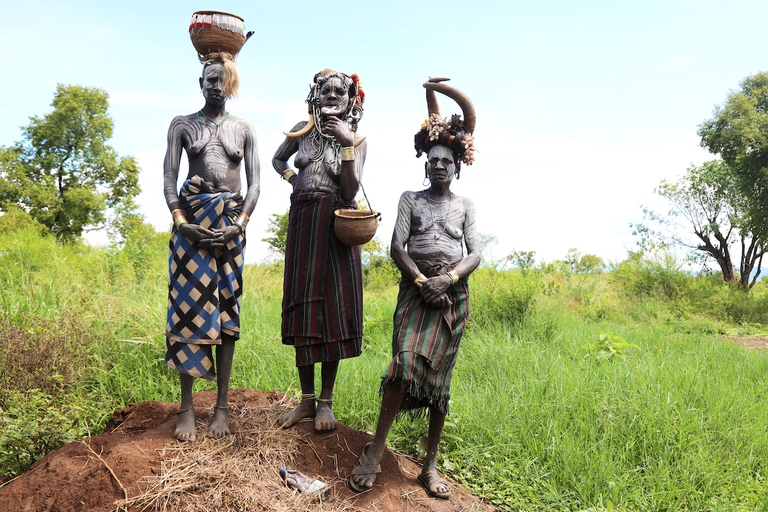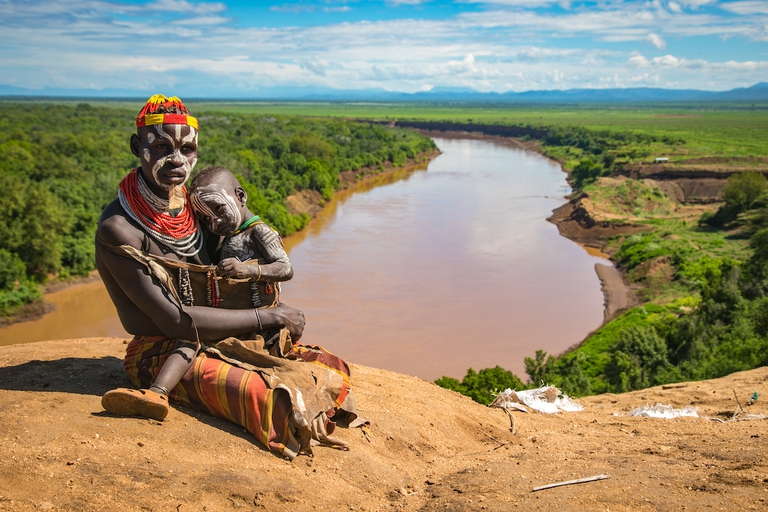
A special report from the Yuqui territory delves deep into the dreams, challenges, joys and sadness of one of Bolivia’s most vulnerable indigenous groups.
Abiy Ahmed was awarded the Nobel Peace Prize for reaching peace with Eritrea. Yet, Indigenous groups in Ethiopia’s Lower Omo Valley have been abused by security forces, a fact that the prime minister must address, says the Oakland Institute.
Just as the calm before a storm, the notion of “peace” is relegated merely to a temporary ruse if not supported by the foundations of justice and equality.
This international Human Rights Day, the Nobel Peace Prize was awarded to Ethiopian Prime Minister Abiy Ahmed Ali for securing peaceful relationships with neighbouring Eritrea, as well as domestic reforms supporting equality and justice. Yet he already made headlines days before the ceremony in Oslo, Norway, by refusing to attend a press conference called by the Nobel Institute and an additional one alongside the Norwegian Prime Minister, normally attended by each year’s Nobel Laureate.
The director of the Norwegian Nobel Institute, Olav Njolstad, expressed concern regarding Ahmed’s refusal to attend any events at which he would face questions by the press, especially as the ceremony comes in the wake of violence throughout Ethiopia, with reports of at least 67 people dead in Addis Ababa, the country’s capital, during protests at the end of October.
While Ahmed condemned the bloodshed, promising to “bring perpetrators to justice,” he hasn’t yet addressed reports of violence among Ethiopia’s marginalised groups located in the country’s south, in the Lower Omo Valley region. The Oakland Institute has received evidence that Ethiopian forces have detained and abused members of two tribes in the area, the Bodi and Mursi, under the guise of a disarmament campaign, subjecting them to inhumane conditions.
Women and children who were going to the doctor were captured, as well as anyone visiting the town around the factory. The security forces laid out thick black plastic tarps in the burning sun, then they made the Mursi sit on them, naked, while they beat them.Leopard Woman, a Mursi woman of Haile Wuha village, 21 October 2019
The terror also included rapes, beatings and indiscriminate killings.
We’re imprisoned in a building and we have to go to the bathroom on the floor. They don’t give us food and make us drink urine like its water. The security forces are beating people so badly. They spear people with the bayonet of the gun and they beat them with the gun butt. There are many people who are severely hurt.Striped Bull, a Mursi man of Haile Wuha village, 22 October 2019
Officials claim the disarmament campaign was undertaken in response to tribal violence and shootings surrounding sugar plantations, in an effort to promote “peace.”
Read more: Ethiopia, displaced indigenous communities in the Lower Omo Valley deserve inclusive development
Ethiopia began the construction of the Gibe III Dam in 2006, meant to irrigate large-scale sugar plantations and other government schemes for so-called development. However, the project displaced several Indigenous groups of the Lower Omo region, who have relied on seasonal flooding by the river for centuries, practicing flood-retreat cultivation for farmland and livestock grazing.
The government has never delivered on promised services such as food, education and controlled artificial floods, resulting in food insecurity, acute hunger and poverty among the displaced groups. Adding insult to injury, outsiders were invited to work the plantation jobs promised to the communities, and many locals were killed by plantation vehicles and never saw justice.
Now it’s time for the current government to take responsibility for the gross mistreatment of the Indigenous groups by the previous administration, steering clear of using violence to silence those who have been affected. In its June 2019 report, the Oakland Institute expressed hope that Ahmed, who came to power in April the previous year, would correct past mistakes, but there has yet to be any response.
71 years after the adoption of the Universal Declaration of Human Rights, Ahmed accepts the Nobel Peace Prize. To do this award justice, it’s imperative that he addresses human rights abuses taking place under his rule, ending the violence as well as providing the necessary services and finances to restore the livelihoods of the Lower Omo’s communities.
Siamo anche su WhatsApp. Segui il canale ufficiale LifeGate per restare aggiornata, aggiornato sulle ultime notizie e sulle nostre attività.
![]()
Quest'opera è distribuita con Licenza Creative Commons Attribuzione - Non commerciale - Non opere derivate 4.0 Internazionale.
A special report from the Yuqui territory delves deep into the dreams, challenges, joys and sadness of one of Bolivia’s most vulnerable indigenous groups.
The Yuqui people of the Bolivian Amazon fight not only to survive in the face of settlers, logging and Covid-19, but to preserve their culture and identity.
Jair Bolsonaro is accused of crimes against humanity for persecuting indigenous Brazilians and destroying the Amazon. We speak to William Bourdon and Charly Salkazanov, the lawyers bringing the case before the ICC.
Activists hail the decision not to hold the 2023 World Anthropology Congress at a controversial Indian school for tribal children as originally planned.
Autumn Peltier is a water defender who began her fight for indigenous Canadians’ right to clean drinking water when she was only eight years old.
The pandemic threatens some of the world’s most endangered indigenous peoples, such as the Great Andamanese of the Andaman and Nicobar Islands in India.
The Upopoy National Ainu Museum has finally opened. With it the indigenous people of Hokkaido are gaining recognition but not access to fundamental rights.
A video shows the violent arrest of indigenous Chief Allan Adam, who was beaten by two Royal Canadian Mounted Police (RCMP) officers.








